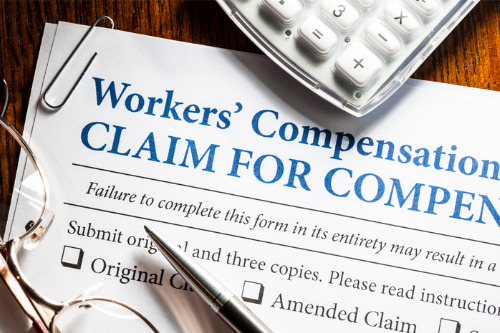

The US workers’ compensation system saw net premiums decline 10% to $42 billion in 2020, a dip largely due to job losses and shrinking payrolls during the COVID-19 pandemic. But, at the same time, carriers generally experienced improved loss ratios, which was a symptom of people working from home and avoiding typical risk-creating activities in the workplace. So, despite the industry reporting $260 million in COVID-19 incurred losses in 2020, according to the National Council on Compensation Insurance (NCCI), the reduction in general loss activity left workers’ compensation carriers in good shape heading into 2021.
“In general, it was good for the industry, particularly when coupled with the idea that there’s going to be a pretty powerful rebooting of the economy, and we have reason to believe there will be a somewhat safer work environment in the future,” said Gary Pearce, chief risk architect at Aclaimant. “One knock-on effect of that is that the average buyer may have a slightly more favorable loss experience modification, which will create some good news in terms of future insurance costs for a while. I think we’ll also see what I call a re-stacking of the relative attractiveness of classes of business moving forward, where underwriters will need to reassess their prior thoughts regarding the risk levels of different industries.”
Businesses that have a higher potential for disease transmission, such as certain healthcare practices, will likely receive more scrutiny from workers’ compensation underwriters after the pandemic, according to Pearce. Likewise, other industries that have struggled to maintain their financial solvency through COVID-19, such as restaurants, retail and hospitality, will be probed by underwriters to ensure that they have enough liquidity to bear whatever deductible or retention they’re taking under their workers’ compensation program.
Workers’ compensation carriers will be looking to attract “preferred risks” as the US emerges from the COVID-19 pandemic. Pearce commented: “I think the better carriers are looking on the pandemic as a market disruption opportunity, which has given them a chance to cherry pick business and write some more discriminating accounts. The questions they’ll be asking themselves are: ‘How do we go forward from this? Do we have a business plan that will enable us to thrive in a recovery environment?’ And the winners will be the insurance companies that can attract and retain the preferred risks.”
Winning the favor of “preferred risks” takes time and effort. As a former workers’ compensation buyer for many years, Pearce said the first thing he looked for in a carrier partner was stability. He rejected working with carriers that were new to a line of business and were buying their way in by dropping prices and making unrealistic guarantees about the future.
“Rather, I wanted a carrier that would be attracted to quality accounts and had the characteristics to attract and retain those accounts over time,” he told Insurance Business. “Those characteristics would be: a financial standing of impeccable level (in terms of capital, surplus, financial ratings, etc.), but also the talent and infrastructure to know the business, to serve it well, and to meet the service needs of the sophisticated or more needy buyer. Those things haven’t gone out of fashion. You want to get with the operators who only want the quality risks, because they’re the ones who are going to be successful in their underwriting, and therefore they’ll be a good stable source.
“Anybody can fly an airplane in calm weather when they’re just scooting along in the atmosphere, but you want a talented pilot when the weather is bad or other things go haywire. That’s true when you’re buying insurance as well. You have to arrange your program with an eye toward how things will go when the going gets rough, either because the carriers aren’t getting investment income, or because you, as an insured, have had a shock loss, or there are environmental factors such as COVID-19 that turn the world upside down. You need carrier partners who are going to stick with you over those times. And so, insurers have got to build that reputation, and they need to have that infrastructure and that financial standing - and those things aren’t built and earned overnight.”
With the workers’ compensation market thriving after several years of unparalleled results, there has been an influx of new carriers, programs and insurtech companies that continue to add capacity and drive competition.
“One of the dirty little secrets of the workers’ compensation business is that, compared to the liability business, your upside is a lot more defined these days,” said Pearce. “Workers’ compensation is looking a little more attractive than things like motor vehicle liability, because there’s not as much risk of a nuclear jury verdict. Juries don’t get to hear workers’ comp cases, the market’s controlled by statute, so insurers can probably manage their retentions a little better, their catastrophe exposure a little better, and they have more control over the social kickback, which is alive and well against ‘big bad insurance companies’ today.
“You’re somewhat insulated from all that in the world of workers’ compensation, not totally, but to a far greater degree than areas like general and auto liability, which were often looked on as safer areas of underwriting in the past. Workers’ compensation is looking to be a little more attractive, but again, if you haven’t been in the game and earned that reputation, you’re going have a hard time attracting the preferred risks.”
